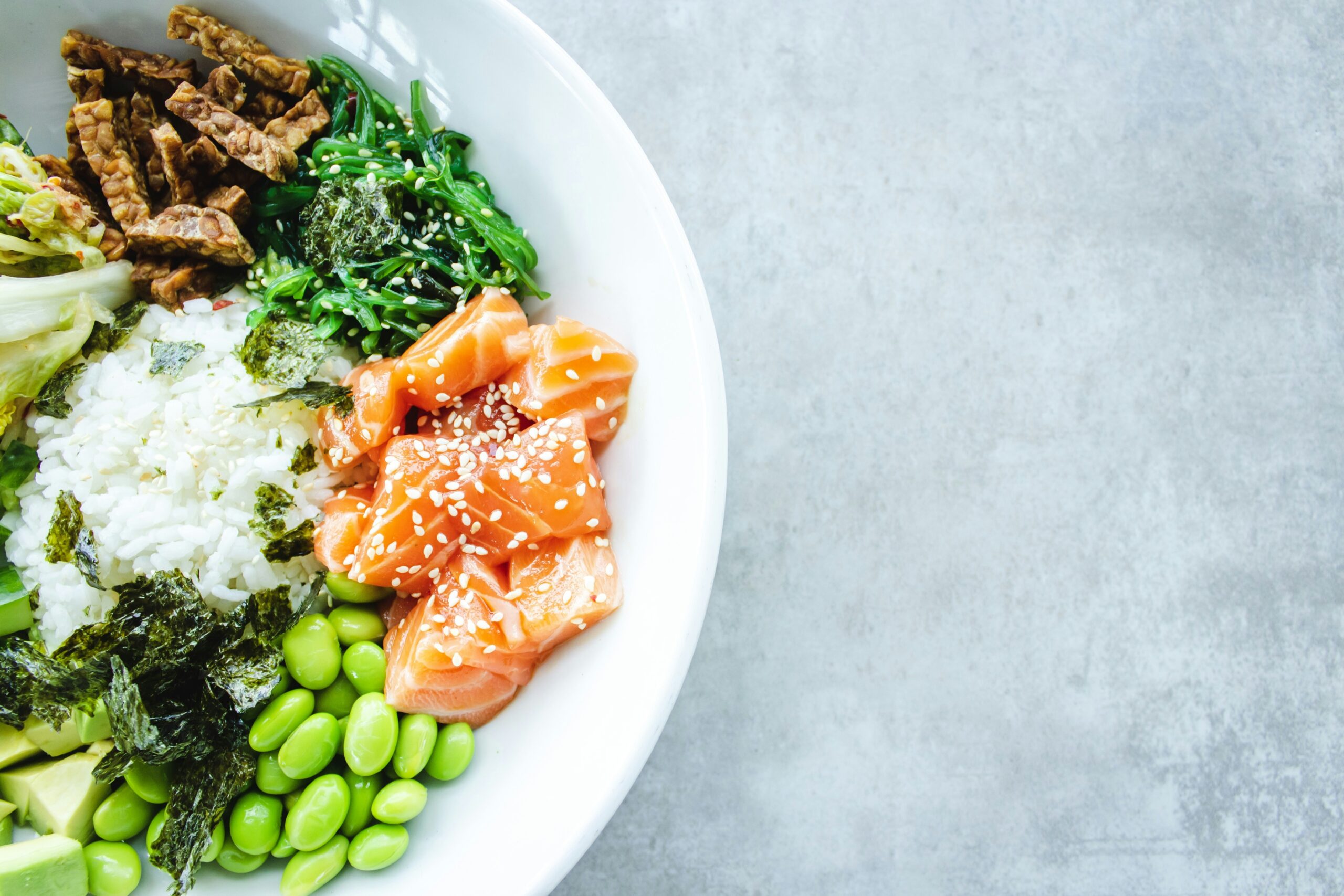If you’re following a keto weight loss diet and wondering if protein shakes or powders can be a part of your meal plan, you’ll be delighted to know that the answer is yes! Protein shakes and powders can be a convenient and effective way to meet your daily protein requirements while staying within the guidelines of a keto diet. Packed with essential amino acids and low in carbohydrates, these shakes can help support muscle growth, reduce cravings, and keep you feeling full for longer. So, let’s explore how protein shakes and powders can fit into your keto weight loss journey and enhance your progress.
Understanding the Keto Diet
The ketogenic diet, commonly known as the keto diet, is a low-carb, high-fat diet that has gained popularity in recent years. The fundamental principle behind the keto diet is to reduce your carbohydrate intake and replace it with fats. By doing so, your body shifts into a metabolic state called ketosis, where it burns fat for energy instead of carbohydrates. This metabolic shift can lead to numerous health benefits and weight loss.
Fundamentals of a Ketogenic Diet
To follow a ketogenic diet correctly, it is crucial to understand the fundamentals. The primary goal is to restrict carbohydrate consumption to a minimal amount, typically around 20-50 grams per day. This reduction in carbs forces your body to rely on fats as its main source of energy. In addition to limiting carbs, you should also aim to consume a moderate amount of protein and increase your intake of healthy fats.

The Ketosis Process
The process of ketosis occurs when your body lacks sufficient carbohydrates to produce glucose for energy. As a result, it begins to break down stored fats and convert them into ketones through the liver. These ketones are then utilized as fuel by your body and brain. Achieving and maintaining ketosis is the primary objective of a ketogenic diet and is what distinguishes it from other low-carb diets.
Benefits of the Keto Diet
The keto diet offers a variety of benefits beyond weight loss. Some research suggests that it may help improve insulin sensitivity, making it an effective tool in managing type 2 diabetes. It has also been associated with increased mental clarity and improved cognitive function. Additionally, the keto diet has shown promise in reducing seizures in children with epilepsy.

Role of Protein in a Keto Diet
While the keto diet emphasizes high-fat consumption, it is essential not to overlook the role of protein. Protein plays a crucial role in various bodily functions, making it an integral part of maintaining a healthy and balanced diet, even while following a ketogenic lifestyle.
Regulating Hunger and Appetite
Protein has a unique ability to regulate hunger and appetite. Including an adequate amount of protein in your meals can help you feel fuller for longer periods, reducing the urge to snack on high-carb foods. This can be particularly beneficial when adhering to a low-carb diet like keto, as hunger pangs are often a common challenge to overcome.

Maintaining Muscle Mass
Protein is the building block of muscles and is essential for muscle growth and repair. When following a ketogenic diet, it is crucial to preserve lean muscle mass. Consuming an adequate amount of protein can help mitigate muscle loss and support muscle recovery after exercise.
Supporting Recovery After Exercise
Exercise is an important component of any healthy lifestyle. By including protein in your post-workout routine, you can aid in the recovery and repair of muscle tissue. Protein shakes, in particular, can offer a convenient and easily digestible source of protein after a workout, helping to replenish and rebuild muscle fibers.
What Are Protein Shakes and Powders?
Protein shakes and powders have become increasingly popular as a supplement for fitness enthusiasts and those looking to increase their protein intake. These products are typically made from protein-rich ingredients, such as whey, casein, egg, or plant-based sources like soy or pea protein.
Different Types of Protein Powders
There are various types of protein powders available on the market, each with its own unique benefits and characteristics. Whey protein, derived from milk, is the most commonly used and is considered a complete protein. Casein protein, also derived from milk, is digested more slowly, making it a suitable option for sustained protein release throughout the day. Other options include egg protein, which is lactose-free and easily digestible, and plant-based proteins like soy, pea, and hemp protein.
The Process of Making Protein Powders
Protein powders are created by extracting protein from the source material, such as milk, eggs, or plants. This process typically involves removing the fat and carbohydrate content, leaving behind a concentrated form of protein. The resulting powder can then be mixed with water, milk, or other liquids to create a protein shake.
Benefits and Drawbacks of Protein Shakes
Protein shakes offer several benefits, including convenience, versatility, and a high protein content per serving. They can be easily prepared and consumed on the go, making them a convenient option for those with busy lifestyles. Additionally, protein shakes can be customized to fit individual preferences by adding fruits, nut butter, or other ingredients for flavor and added nutrients.
However, it’s important to consider some potential drawbacks as well. Some protein powders may contain additives, sweeteners, or artificial flavors, which may not align with a clean and whole foods approach. It is essential to read the ingredient list and choose a product that meets your specific dietary needs and preferences. Additionally, protein shakes should not be relied upon as a sole source of nutrition and should be consumed as part of a well-balanced diet.
Should You Have Protein Shakes on a Keto Diet?
When following a ketogenic diet, it’s essential to maintain a proper balance of macronutrients, including protein. While protein shakes can be a convenient way to increase your protein intake, there are a few factors to consider before incorporating them into your keto diet.
Importance of Macronutrient Balance in Keto
Maintaining an appropriate balance of macronutrients is critical to achieving and sustaining ketosis. While protein is an essential macronutrient, consuming too much protein can potentially lead to a process called gluconeogenesis. Gluconeogenesis is a metabolic process where protein is converted into glucose, potentially disrupting the ketogenic state and hindering weight loss goals.
The Risk of Protein Consumption Leading to Gluconeogenesis
Protein shakes and powders, depending on the serving size and type, can contain a significant amount of protein. It’s crucial to be mindful of your overall protein intake and ensure it aligns with your individual macronutrient goals. Too much protein can elevate insulin levels and potentially trigger gluconeogenesis, reducing the body’s ability to remain in ketosis.
Pros and Cons of Using Protein Shakes in a Keto Diet
When used in moderation and as part of a well-balanced diet, protein shakes can be a beneficial addition to a keto lifestyle. They provide a convenient and portable source of protein that can help meet your nutritional needs. However, it’s essential to choose protein shakes that are low in carbohydrates and contain minimal additives or sweeteners. Additionally, it’s important to listen to your body and adjust your protein intake as needed to maintain ketosis.
Recommended Protein Shakes for a Keto Diet
If you decide to incorporate protein shakes into your keto diet, it’s essential to choose options that align with your dietary goals and preferences. Here are some recommended protein sources:
Whey Protein
Whey protein is a popular choice for its high protein content and amino acid profile. It is easily absorbed by the body, making it an excellent option for post-workout recovery. When selecting a whey protein powder, opt for options that are low in carbohydrates and free from artificial sweeteners or additives.
Egg Protein
Egg protein powders are derived from egg whites and offer a complete protein source. They are lactose-free and easily digestible, making them suitable for individuals with lactose intolerance or sensitivities. Egg protein is also rich in essential amino acids and can support muscle recovery and growth.
Plant-Based Protein
For those following a vegan or vegetarian keto diet, plant-based protein powders can be a suitable option. Sources such as soy, pea, hemp, and rice protein offer a complete amino acid profile and can provide adequate protein intake. Look for options that are low in carbohydrates and free from artificial additives or sweeteners.
Evaluating Protein Shakes and Powders
When choosing a protein shake or powder for your keto diet, it’s essential to evaluate various factors.
Considering Net Carbohydrate Content
One crucial factor to consider is the net carbohydrate content of the protein shake. Net carbs are calculated by subtracting the amount of fiber and sugar alcohols from the total carbohydrates. On a keto diet, it’s important to choose protein shakes that are low in net carbs to ensure they don’t disrupt ketosis.
Looking at the Ingredient List
Carefully reading the ingredient list is paramount to ensuring the protein shake aligns with your dietary preferences and health goals. Look for options that prioritize whole food ingredients and avoid artificial additives or sweeteners. Selecting products with minimal ingredients can also help avoid potential allergens or sensitivities.
Understanding Sugar Alcohols and Impact on Blood Glucose Levels
Some protein shakes may use sugar alcohols as a sweetener, which can provide sweetness without adding to the net carbohydrate count. While these sweeteners are generally considered safe, they can still have an impact on blood glucose levels for some individuals. Pay attention to how your body responds to sugar alcohols and adjust your intake accordingly.
Recipes for Keto-Friendly Protein Shakes
Creating your own protein shakes at home can be a great way to ensure they align with your keto diet and taste preferences. Here are a few recipe ideas:
Chocolate Keto Shake
- 1 scoop of chocolate whey protein powder
- 1 tablespoon of almond butter
- 1 cup of unsweetened almond milk
- 1/4 teaspoon of vanilla extract
- 1/2 cup of ice
Blend all the ingredients together until smooth, and enjoy as a delicious and satisfying keto-friendly protein shake.
Vanilla Blueberry Keto Shake
- 1 scoop of vanilla plant-based protein powder
- 1/2 cup of frozen blueberries
- 1 cup of unsweetened coconut milk
- 1 tablespoon of chia seeds
- 1/2 cup of ice
Blend all the ingredients until well combined, and enjoy a refreshing and nutritious ketogenic shake.
Green Keto Smoothie
- 1 scoop of vanilla or unflavored protein powder
- 1 cup of unsweetened almond milk
- 1 handful of spinach or kale
- 1/2 small avocado
- 1 tablespoon of coconut oil
- 1/2 cup of ice
Blend all the ingredients until creamy and enjoy a nutrient-dense green smoothie packed with protein and healthy fats.
Possible Side Effects of Protein Shakes on Keto
While protein shakes can be a valuable addition to a keto diet, there are potential side effects to be aware of.
Digestive Issues
Some individuals may experience digestive issues, such as bloating, gas, or diarrhea, when introducing protein shakes into their diet. If you experience any discomfort, consider adjusting the type or brand of protein powder or consult with a healthcare professional to determine the underlying cause.
Allergic Reactions
Protein shakes often contain ingredients derived from common allergens, such as milk or soy. If you have known allergies or sensitivities, make sure to choose protein powders that are free from those allergens or find suitable alternatives.
Potential for Nutrient Deficiencies
While protein shakes can provide a convenient source of protein, it’s important to remember that they should not replace whole food sources. Relying too heavily on protein shakes for nutrition can result in potential deficiencies in other essential nutrients. It’s crucial to maintain a varied and balanced diet that includes a wide range of whole foods.
When to Have Your Protein Shake on a Keto Diet
The timing of your protein shake consumption can play a role in optimizing its benefits within your keto diet.
As a Post-Workout Recovery Drink
Consuming a protein shake after a workout can help support muscle recovery and replenish protein stores. Including a source of carbohydrates, such as a small amount of berries or a banana, can enhance glycogen replenishment and aid in recovery.
As a Meal Replacement
Protein shakes can also be used as a convenient meal replacement option. When blending your shake, consider adding healthy fats, such as avocado or coconut oil, to increase satiety and ensure you’re getting a well-rounded meal.
As a Snack Between Meals
Protein shakes can serve as a convenient snack option, especially when you’re on the go or need a quick energy boost. Adding some low-carb nuts or seeds to your shake can provide additional nutrients and help stabilize blood sugar levels.
Consulting with Health Professionals
While protein shakes can be a valuable tool in a ketogenic diet, it is always recommended to consult with health professionals to ensure you are meeting your individual nutritional needs.
The Role of a Dietitian or Nutritionist
A registered dietitian or nutritionist can provide personalized recommendations and guidance based on your specific goals and requirements. They can help determine the optimal amount of protein for your keto diet and assist in selecting appropriate protein shakes that align with your health goals.
Importance of Regular Physical Check-Up
Regular check-ups with your healthcare provider are essential for monitoring your overall health, including any potential impact that dietary changes may have on your body. They can provide valuable insights and guidance regarding your keto diet and protein shake consumption within the context of your overall well-being.
Considering Individual Nutritional Needs
Each individual is unique, and nutritional needs may vary. Factors such as age, activity level, underlying medical conditions, and personal goals should all be taken into account when incorporating protein shakes into a keto diet. Working with healthcare professionals ensures that you are making informed decisions that align with your individual needs.
In conclusion, protein shakes can be a valuable addition to a keto diet, providing a convenient source of protein for muscle recovery, satiety, and maintaining overall nutritional balance. However, it is crucial to choose protein shakes that are low in carbohydrates and free from artificial additives, and to be mindful of your overall macronutrient balance to stay in ketosis. Consulting with health professionals can help ensure that your protein shake usage is tailored to your unique needs and aligns with your health goals. With the right approach, protein shakes can be a beneficial tool to support your ketogenic lifestyle.

